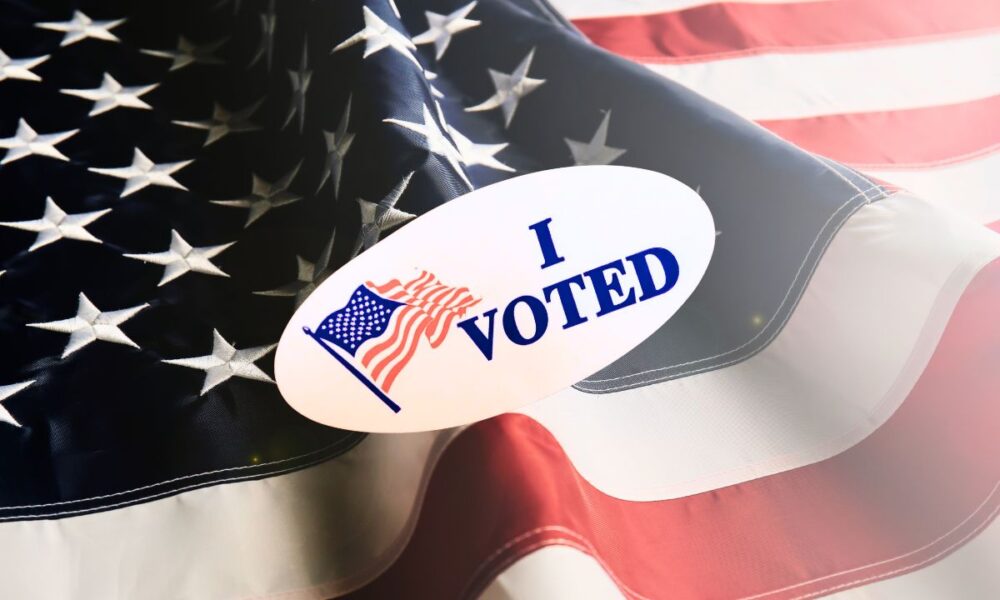Although the November election will not choose the President of the United States, it will determine important races and ballot measures nationwide.
States like Texas, California, New Jersey, Virginia, and Pennsylvania are holding important races on November 4, potentially giving a glimpse into Americans’ perspectives on the country’s direction since President Donald Trump’s inauguration.
In Texas, voters will decide on a list of constitutional amendments – from judicial reform to education funding to capital gains tax to public safety. Republican Gov. Greg Abbott also called a special election in November to fill the seat of Democrat Rep. Sylvester Turner, who died suddenly in March.
Across the nation, voters will decide on other important measures – including California gerrymandering, mail-in voting in Maine, the governors of New Jersey and Virginia, and the mayors of New York City and Minneapolis.
In a year without widespread federal elections, voter turnout is typically much lower. But this year, the elections could provide a glimpse into the new public perception of Republicans and Democrats.
Ahead of Halloween, Americans were most fearful of corrupt politicians, loved ones becoming ill, and economic collapse, according to The New York Post.
As Emerson College Polling reported, most citizens felt the economy was the top issue, followed by “threats to democracy,” immigration, healthcare, crime, and housing.
Texas
Early voting began on October 20 and ends on October 31. Election day is November 4.
Texas voters will vote on 17 constitutional amendments in the upcoming election. They are as follows:
- Proposition 1 – to create two dedicated state college funds for the Texas State Technical College System.
- Proposition 2 – to ban the state legislature from passing a capital gains tax.
- Proposition 3 – to allow denial of bail for certain violent offenders.
- Proposition 4 – to divert up to $1 billion annually into a new Texas Water Fund for infrastructure projects.
- Proposition 5 – to allow the state legislature to exempt retail animal feed from local property taxes.
- Proposition 6 – to ban the state legislature from taxing securities transactions.
- Proposition 7 – to allow homestead exemptions for the surviving spouse of a veteran who died of conditions related to service.
- Proposition 8 – to ban the state legislature from taxing estate, inheritance, or gifts.
- Proposition 9 – to allow the state legislature to exempt up to $250,000 in income-generating property from property taxes.
- Proposition 10 – to allow the state legislature to give a temporary homestead exemption to those destroyed by fire.
- Proposition 11 – to allow the state legislature to raise the school property tax exemption for elderly and disabled homeowners to $60,000.
- Proposition 12 – to reform the State Commission on Judicial Conduct, increasing citizen representation on the board, transparency for misconduct, and enforcement.
- Proposition 13 – to raise the school property tax exemption for homesteads to $140,000.
- Proposition 14 – to create a state medical research institute, pledging $3 billion initially and $300 million annually.
- Proposition 15 – to affirm parents are the primary decision-makers for their children.
- Proposition 16 – to codify the requirement that only U.S. citizens can vote in elections.
- Proposition 17 – to allow the state legislature to exempt property along the southern border from tax increases resulting from border security infrastructure.
The Nation
In California, voters will decide on Proposition 50, according to the State Court Report. This will determine whether the Democrat-controlled state legislature can implement a new district map, aside from that drawn by the independent redistricting commission, until 2030. If this passes, it will likely let Democrats counter Texas Republicans’ recent redistricting efforts.
In Maine, voters will decide whether to pass mail-in voting reforms – such as requiring photo ID, ending ongoing absentee voting for the elderly and disabled, eliminating two days of absentee voting, and banning prepaid postage on return envelopes.
In New Jersey, the state will decide whether to elect Republican Jack Ciattarelli or Democrat Mikie Sherrill as governor. According to The New York Times, Gov. Chris Christie has held office for 23 years, and the upcoming race is close, though Democrats hold an 850,000-voter edge over Republicans.
In Virginia, voters will decide between Republican Lt. Gov. Winsome Earle-Sears and former Democrat state Rep. Abigail Spanberger. They will also decide on the attorney general, choosing between Republican Jason Miyares and Democrat Jay Jones, who was hit by a scandal, after leaked texts showed he wished for the murder of a political opponent and his children.
In New York City, State Assemblyman Zohran Mamdani – an open socialist – is running against former Gov. Andrew Cuomo for mayor. While both are Democrats, the race draws a line between perceived “establishment” candidates like Cuomo and more “radical” candidates like Mandani, who advocates government-run grocery stores.
Similarly, in Minneapolis, socialist candidate Omar Fateh – a first-generation Somali American – is challenging Mayor Jacob Frey for office. Both are Democrats, but this race could show which faction has been gaining ground in the party.
Although voter turnout may be lower than in federal elections, this election is likely to offer insights into the perspectives and positions of the American public.


